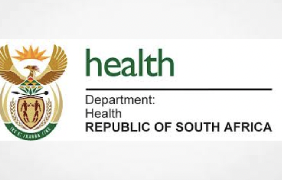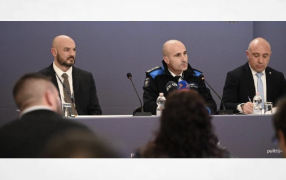AUTHORED BY: JORDAN ZOOT
Accounting, Attest, Tax, Regulatory Compliance and Technology
Evanston HQ [Chicago] – Oakland – New York
CPA.CITP.CISM.CGEIT.CGMA
Verticals: California Commercial Cannabis Industry, Alt. Investments/Private Equity, Real Estate, Professional Services, IRS Controversy, OPR Practitioner Represenatio and Distressed Assets/Debt
Technology :
Advanced & High Complexity Cloud Integrator
AICPA PCPS, CAQ, IMTA, CITP
ISACA CGEIT, CISM
Technologies & Platforms – with Certifications and Full Partner Program Members
Google Cloud Partner – G Suite, Education, Chrome, Android
Google Partners – Adwords & Analytics
Microsoft CSP Silver Partner – Office 365, Azure Platform
Amazon Web Services – Consulting Partner, EC2, S3, Dockers
Collab., Sync & Sharing – box.com, Dropbox Business, cloudHQ.net
Enterprise Apps – salesforce.com, Evernote Business, Zendesk
workato.com – Advanced Integration Platform, Fishbowl Inventory & ERP
Financial Apps – Xero Gold Accounting Partner, METRC,
AICPA – PCPS, CAQ Member Firm
State CPA Societies in California, Florida, Illinois, New York and Texas
Members – ICAEW, CIOT, CAANZ, and The Tax Institute in the UK and Australia
Expertise with Regulatory Compliance – US – HIPAA, FINRA, SEC Rule 17(a)(3)/(4), eDiscovery, FINCEN – EU- EBA, ESMA, EIOPA UK – BoE, PRA, FCA
AICPA Member Firm
– Center for Audit Quality Firm# 2092102
– Private Companies Practice Section Firm# 02092102
16 July 2018
Cannabis CPA Becomes Cannibal and you could be lunch. We just signed on our third cannabis industry expert witness in a professional liability litigation case in two weeks. You would think that we would be thrilled as these assignments tend to start in five digits and go to mid-six digits…nope, I have a pit in my stomach when I consider the reality that I am going to be part of a process that may destroy another accountant, EA or CPA’s career or life for that matter.
Some people will play “holier than thou” and suggest that we should turn down the assignment, and my response is HELL NO!
When an attorney, EA or CPA takes on a cannabis industry client that has a complex business, and needs that vastly exceed their skills, it puts that client’s life and livelihood at risk.
It also happens to be precisely the type of incompetence and negligent behavior that someone who I admire tremendously used to seeth over.
Prior to 2009, most tax practitioners may have heard of the IRS Office of Professional Responsibility [“OPR”] some point in a professional ethics course. By the time she left OPR in 2015, Karen Hawkins, Esq. had made damn sure that every single one of us knew what OPR was, why it was there and what our responsibilities were.
Karen Hawkins Esq
- When you deal with cannabis businesses, particularly in the areas of maintaining required:
- Books of Account
- Inventory Records and documentation to support the calculation of Cost of Goods Sold
- Internal Accounting Controls over Cash
- Competence and consistency in performing accounting, tax and regulatory compliance tasks.
We are NOT talking about hyper-complex IRC Sec 280E allocations and rocket science…these tasks are basic and should be within the competence of any first-year professional staff person, or bookkeeper with proper supervision.
Cannabis CPA Becomes Cannibal
If anyone does believe what was just written, permit us to provide a short reading list.
(i)
Alterman and Gibson TC Memo 2018-83 where cannabis tax attorney Henry Wykowski, Esq. of Henry G. Wykowski & Associates got his balls cut off by the judge. It is plain as the nose on your face that the taxpayers got screwed due to their own crappy record keeping, Henry Wykowski, Esq.counsel’s failure to fully review records and documentation before getting to court, and failure to engage a CPA where tasks were outside of counsel’s competence. [There is an excellent article on the topic written by Prof. Bryan Camp that should be required reading Lesson From The Tax Court: Into The Weeds on COGS]
(ii)
Neil Feinberg et ux., et al. v. Commissioner, (2017 Memo 2017-211) if there EVER we an example of taxpayer’s being granted the benefit of the doubt by a court, and then proceeding to shoot themselves in the head due to self-inflicted wounds from a bumbling expert, incomplete and sloppy record keeping this is it. Renowned cannabis tax expert Jim Marty, CPA Jim Marty, CPA of Bridge West CPA’s was eviscerated by a Tax Court judge who wrote…….
Whether the report and testimony will be received in evidence and considered in determining THC’s COGS for tax years 2009-11 depends on the application of principles expressed in Daubert v. Merrell Dow Pharms., Inc., 509 U.S. 579 (1993), and Rule 702 of the Federal Rules of Evidence. [We have extensive background materials on Daubert and its application for expert that you can access here.]
Rule 702 of the Federal Rules of Evidence provides:
A witness who is qualified as an expert by knowledge, skill, experience, training, or education may testify in the form of an opinion or otherwise if:
(a) the expert’s scientific, technical, or other specialized knowledge will help the trier of fact to understand the evidence or to determine a fact in issue
(b) the testimony is based on sufficient facts or data;
(c) the testimony is the product of reliable principles and methods; and
(d) the expert has reliably applied the principles and methods to the facts of the case.
In Daubert, 509 U.S. at 592, the Supreme Court stressed the trial court’s role as a “gatekeeper” in excluding at the outset evidence that is unreliable or irrelevant. The trial judge must make “a preliminary assessment of whether the reasoning or methodology underlying the testimony is scientifically valid and of whether that reasoning or methodology properly can be applied to the facts in issue.” Id. at 592-593.
The Marty report is brief and summary, and its content is unreliable. Multiple statements in the report refer to no underlying source of information. For other statements that do cite an underlying source, Marty has failed to include the[*9] information or data on which he relied. In many instances, the report does not reference or provide sufficient information or data for us to conclude that the opinions expressed are based on anything other than his own conjecture…
For the reasons stated above, we conclude that the Marty report is not admissible under rule 702 of the Federal Rules of Evidence because is it is not helpful in understanding evidence or in determining a fact and it includes legal conclusions.
When you consider taking on the responsibility for a taxpayer and their business where they are entrusting their economic viability, life and livelihood to you, remember that there are a very specific rule and responsibilities that you take on.
Cannabis CPA Becomes Cannibal
Let’s also keep in mind that using self-aggrandizement to declare expertise that can NOT be confirmed is misleading advertising which is sanctionable under Circular 230, Sec. 10.30 states”
§ 10.30 Solicitation. (a) Advertising and solicitation restrictions. (1) A practitioner may not, with respect to any Internal Revenue Service matter, in any way use or participate in the use of any form of public communication or private solicitation containing a false, fraudulent, or coercive statement or claim; or a misleading or deceptive statement or claim. Enrolled agents, enrolled retirement plan agents, or registered tax return preparers, in describing their professional designation, may not utilize the term “certified” or imply an employer/employee relationship with the Internal Revenue Service…
Circular 230 Sec. 10.35 continues
§ 10.35 Competence. (a) A practitioner must possess the necessary competence to engage in practicebefore the Internal Revenue Service. Competent practice requires the appropriate level of knowledge, skill, thoroughness, and preparation necessary for the matter for which the practitioner is engaged.
§ 10.51 Incompetence and disreputable conduct. (a) Incompetence and disreputable conduct. Incompetence and disreputable conduct for which a practitioner may be sanctioned under §10.50 includes, but is not limited to — see Circular 230 for details
Circular 230, Sec. 10.52 provides sanctions for
(a) A practitioner may be sanctioned under §10.50 if the practitioner —
(1) Willfully violates any of the regulations (other than §10.33) contained in this part; or
(2) Recklessly or through gross incompetence (within the meaning of §10.51(a)(13)) violates §§ 10.34, 10.35, 10.36 or 10.37.
When we are retained to assist counsel in reviewing the work of another tax professional, we commit to doing so with the same level of objectivity that we would want for ourselves. Every single one of us has an obligation to review both our work and our process on a regular basis and make improvements to our process and skills.
The IRS recognizes that none of us is immune from making a mistake, and learning from them is key. Anyone that doesn’t may run into a very nasty surprise contained in IRC Sec. 6694(b)(2) which provides for an enhanced penalty for patterns of negligence and occasional disregard for the rules.
A failure to take corrective action lays the foundation for the Internal Revenue Service to assert the existence of a pattern of repeated and potentially reckless and intentional disregard of the regulations and requirements. Such a pattern can result in the assertion of the “second tier” enhanced penalty under IRC Sec. 6694(b)(2). Such a penalty assertion could result in an additional sanction through a practitioner disciplinary referral to OPR.
A practitioner that puts a client in jeopardy through their incompetence should be crucified or burnt at the stake. Oh and by the way I left on generic accountant/tax return preparer a lovely message on their Facebook page this morning.



















